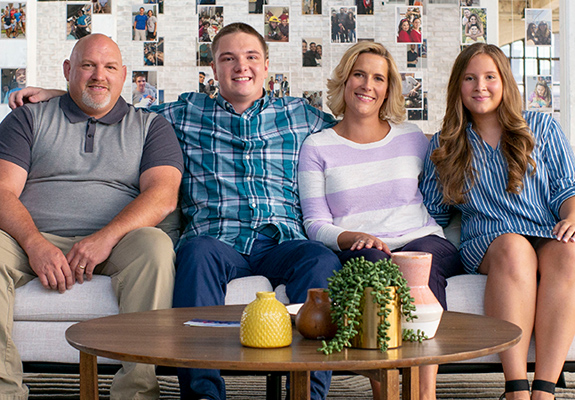Teens need families
Thousands of teens in foster care are looking for the love, support, and encouragement that families provide throughout their lives—not just until they turn 18

This year, more than 20,000 young people will leave foster care without a family. Many of them will not have anyone they can call for help, for advice, for a ride when their car breaks down.
It’s disturbing, but probably not surprising, that outcomes for youth who age out of foster care are often poor. Studies show that they are at increased risk for homelessness, young parenthood, low educational attainment, high unemployment rates, and other adverse adult outcomes.
The good news is that it only takes one person to improve these odds for a young person. If you think that person might be you, read on!
As we all know, you never outgrow the need for a family. Everyone needs a sense of belonging.
Through adoption, older children are connected to a family that can provide a sense of stability, lasting connections, and guidance with important life tasks—including enrolling in higher education, finding stable housing, securing employment, and establishing healthy relationships.
Do teens have a say in their adoption? How do I know if a teen wants to be adopted?
Yes! Almost every state has a requirement that youth of a certain age provide consent to be adopted. The age varies by state. Fourteen is the most common consent age, but many states require youth as young as ten to consent to adoption. Many parents have told us that adopting a teen has the added reward of knowing that not only did you choose them to be their child, they chose you to be their parents.
We really want to watch a child grow up and share important milestones with them—like their first steps.
You may not be there when they lose their first tooth or take the training wheels off their bike for the first time, but there are plenty of firsts to experience with a teen—first date, learning to drive, first job interview.
And, while teens have a lot to learn from you, they’ll teach you a lot too.

What kind of support will our family get after adopting a teen?
A lot!
Many states and organizations provide financial assistance to children who are in foster care or who were adopted. Youth who were adopted from the foster care system when they are 16 or older may be able to access Education and Training Vouchers (ETV) of up to $5,000 per year. Those who were adopted from foster care when they are 13 or older are more likely to qualify for federal financial student aid because they don’t have to count family income when applying.
When it comes to medical and mental health benefits, qualifying families may receive federally funded monthly maintenance payments, medical assistance, and other support, often until a child turns 18 or 21, depending on the state where they live.
Learn more about educational assistance and medical and mental health benefits at the Child Welfare Information Gateway website.
I’m not ready to commit. Are there other ways to help?
Yes! Spending time with a teen in your community—as a mentor, Big Brother or Big Sister, CASA volunteer, or tutor at your local library or community center—is not only a great way to help a teen, it could help you decide whether fostering or adopting an older child is right for you.
There are many ways you can help, and at least one child who will be glad you did.
Things to do next:
- Read real families’ stories and advice from parents who adopted teens.
- Take our quiz! Find out if adoption from foster care might be right for you.
- Talk with one of our foster care and adoption specialists.
Sources of foster care statistics:
- Supporting Older Youth Beyond Age 18: Examining Data and Trends in Extended Foster Care
- Chapin Hall Midwest Evaluation of the Adult Functioning of Former Foster Youth
